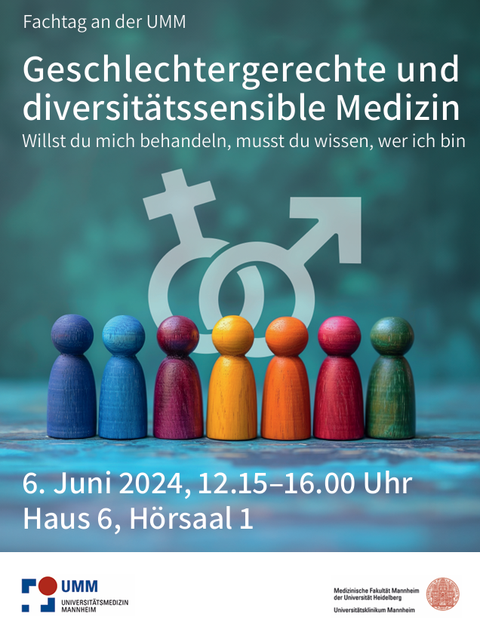May 08, 2024
Gender-equitable and diversity-sensitive medicine
The Equal Opportunities Office of the Mannheim Faculty of Medicine is organizing a symposium on "Gender-equitable and diversity-sensitive medicine" on June 6, 2024 from 12:15 - 16:00 . Stereotypical role models are not only widespread in the general population, but can also be found in medicine. Numerous textbooks show that diagnosis and therapy are based on a male person and that the latter acts as the 'measure of all things'. The view of men as normal and women as deviating from the norm has its roots in the late 18th century and solidified in the 19th century, when medicine became a male-dominated discipline. Women were denied access to medical studies for a long time. In Germany, they remained primarily the objects of medical treatment and research until the beginning of the 20th century.
The attitude of denying women an intrinsic value and ignoring gender-specific differences proved to be very powerful and found expression in the so-called "gender data gap": For decades, there have been no or too few medical studies with female test subjects. The data was collected exclusively or primarily on men and applied accordingly to men. This lack of data on women harbored 'risks and side effects'. If, for example, drugs had been tested on male subjects but were administered to men and women in the same dosage, the same treatment successes did not always occur; in the worst case, this led to the death of women. This is because drugs do not have the same effect in both bodies, as the two sexes differ in terms of metabolism, digestion and body composition.
The first impetus to change this one-sided data collection came from cardiology and pharmacology in the mid-1990s. In the meantime, women are increasingly being included in studies, but not often enough. Studies involving women are simply more complicated and therefore more cost-intensive. However, it is no longer just a question of biological sex, but also of taking (psycho)social factors into account in diagnosis, treatment and prevention. This includes role models, cultural norms and lifestyles, which also influence health and illness and are closely linked to biological sex.
More information on the program and the link to online access can be found on the UMM website at https://www.umm.uni-heidelberg.de/fakultaet/gleichstellung/ (registration)
